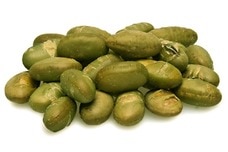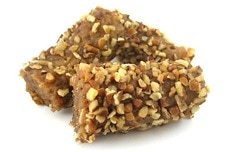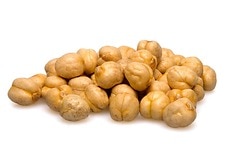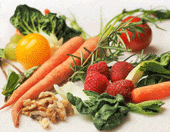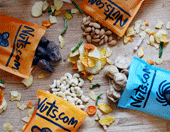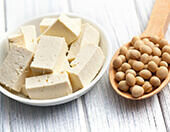5 Unexpected Benefits of Eating a Plant-Based Diet
More people than ever are making the transition to a predominantly plant-based diet, with 7.3 million Americans considering themselves vegetarian and an additional 22.8 million following a mostly vegetarian diet (Vegetarian Times, 2015). People are attracted to a plant-based diet for numerous reasons, including concerns about health or the ethical treatment of animals. However, following a plant-based diet comes with some other benefits that may surprise you.
#1. It’s Less Expensive.
The cost of food has skyrocketed in the United States, but meat products have made the largest jumps. In March 2016, a pound of ground beef cost an average of $3.95, compared to a price of $2.25 per pound in March 2006 (Bureau of Labor Statistics, 2016). That represents a 175% price increase over the past decade.
Switching to plant-based proteins is much more cost effective than paying for meat. Beans and legumes are great sources of protein that cost significantly less than an equivalent amount of meat. In fact, Flynn and Schiff found in a 2015 study published to the Journal of Hunger and Environmental Nutrition that a vegetarian diet cost approximately $750 less per year when compared to a diet with lean animal protein.
#2. You’ll Have No Problem Meeting Your Recommended Daily Fiber Intake.

The recommended daily intake of dietary fiber is at least 25 grams for adults, yet the average American adult fiber consumption is just 15.9 grams per day (King, Mainous, & Lambourne, 2012). Getting enough dietary fiber has myriad health benefits, including gastrointestinal regularity, improved bowel health, lower cholesterol levels, better blood sugar control for diabetics, promotion of a healthy weight, and possibly even a reduced risk of colorectal cancer (Mayo Clinic, 2015).
Eating a plant-based diet makes it considerably easier to meet your recommended daily fiber intake. For example, a cup of black beans contains 15 grams, a cup of raspberries has 8 grams, a quarter-cup of wheat berries contains 5 grams, a cup of frozen green peas contains 14 grams, and an ounce of almonds contains 4 grams of dietary fiber (Palmer, 2008). Eating a diet rich in fruits, vegetables, and whole-grain products ensures you get enough.
#3. It Reduces Risk of Chronic Disease.
Accumulating scientific evidence suggests that a plant-based diet reduces your risk of chronic diseases, including (Physicians’ Committee for Responsible Medicine, 2014):
- Certain types of cancer. Vegetarian diets have been associated with lower risk of colon, breast, prostate, and ovarian cancers, although additional research is needed to explore the direct links between plant-based foods and lower cancer risk.
- Heart disease. Animal products are one of the top sources of saturated fat in the American diet. Saturated fat is associated with higher levels of “bad” LDL cholesterol and increased risk of cardiovascular disease. Thus, following a plant-based diet may help you lower your risk of heart disease.
- Hypertension. Eating a plant-based diet that emphasizes whole foods reduces your sodium consumption, which can lower your risk of hypertension.
- Type 2 diabetes. While a plant-based diet certainly can contain sweets, it also tends to be high in fiber. This helps to prevent severe swings in blood sugar. As a result, a plant-based diet may lower risk of type 2 diabetes.
- Gallstones and kidney stones. Gallstones and kidney stones tend to form in people who have a very high protein diet. Eating animal proteins may increase your risk of gallstones or kidney stones, particularly if you are already prone to developing these stones.
#4. A Plant-Based Diet Is Better for the Environment.
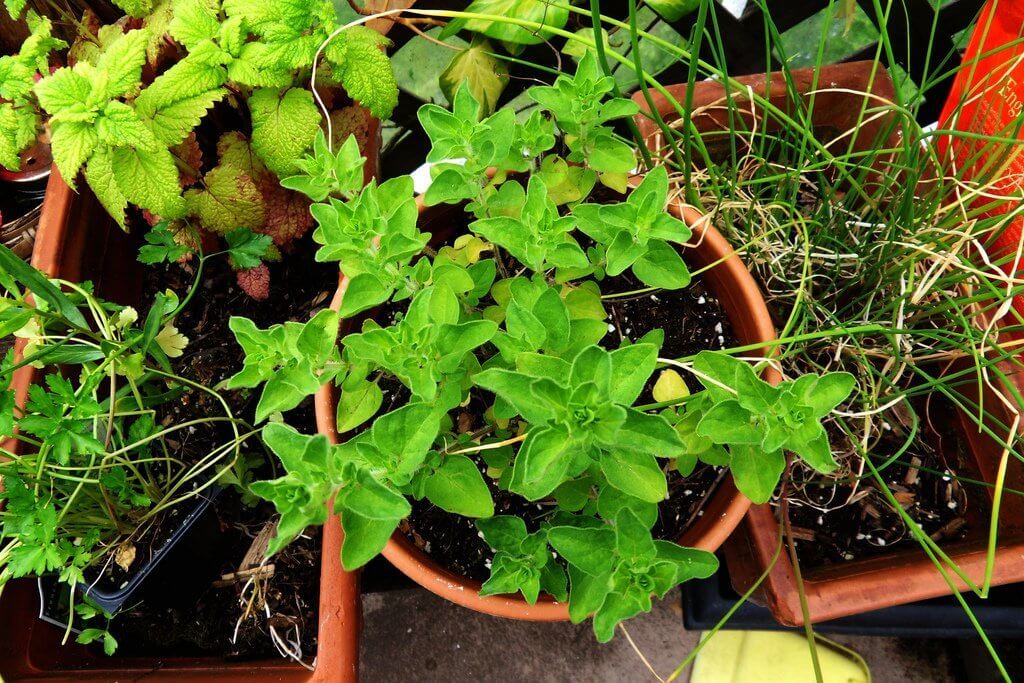
In the United States, 70% of the grain produced is fed to farmed animals (ChooseVeg, 2014). Plant-based diets tend to have a lower environmental impact, requiring less energy to produce their sources of sustenance. Thus, incorporating more fruits and vegetables and fewer meat products into your diet could benefit the planet as a whole.
#5. You Will Lower Your Risk of Foodborne Illness
Foodborne illness affects nearly 48 million Americans each year (Centers for Disease Control and Prevention, 2015). Among the biggest culprits are meat, poultry, shellfish, eggs, and milk products. Eliminating these foods from your diet can lower your risk of foodborne illness, which can be deadly. Of course, it is possible for fruits and vegetables to carry bacteria, but washing these foods decreases your risk.
Plant-Based Recipes
The following recipes include plant-based foods to help guide you along the way to eating green. You can find more plant-based recipes on our salad, vegetarian and vegan recipe pages.
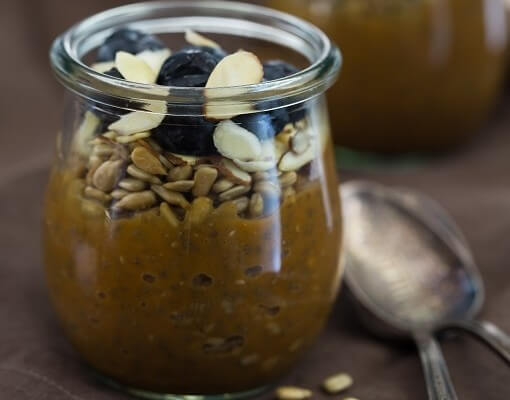
Pumpkin Chia Seed Pudding Recipe
This palatable pumpkin pudding offers the nutrients you need to start the day with mostly plant-based components. Nuts, seeds, pumpkin, and berries all add to the dish’s delicious dishing of valuable vitamins and minerals.
Ingredients: Milk, pumpkin puree, chia seeds, maple syrup, pumpkin spice, sunflower seeds, sliced almonds, fresh blueberries.
Total Time: 10 minutes
| Yield: 4 servings
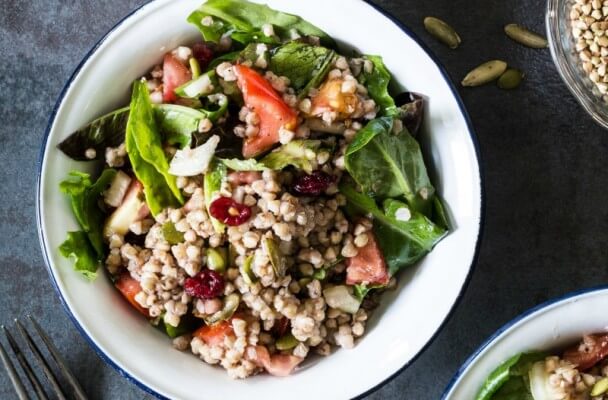
Buckwheat Salad Recipe
This superb salad supplies the benefits of mixed greens, onions, tomatoes, and cranberries. This combination, as well as the other ingredients included, supply a healthy portion of the nutrients you need without the components that ail meat-based diets.
Ingredients: Mixed greens, buckwheat, tomatoes, onion, raw pumpkin seeds, dried cranberries, rice wine vinegar, sesame oil, salt, black pepper.
Total Time: 15 minutes
| Yield: 5 servings
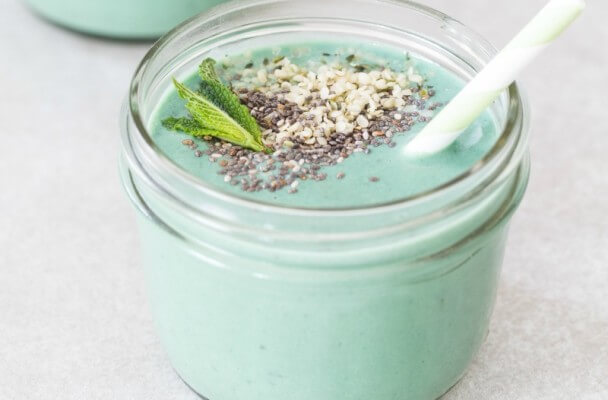
Protein-Packed Detox Smoothie Recipe {vegan}
This scrumptious smoothie adds plant-based protein to your diet in a delicious drink that is easy to make. Enjoy this beverage after a long-workout or make it early in the morning for a quick breakfast that will keep you energized through the morning.
Ingredients: Almond milk, frozen banana, spirulina, hemp protein powder (optional), fresh mint, chia seeds, hemp hearts.
Total Time: 5 minutes
| Yield: 2 servings

Quinoa Stuffed Peppers Recipe {gluten-free}
Peppers, lentils, corn, and spinach provide a blend of fiber, vitamins, and minerals that, when combined with quinoa and feta, make for a complete vegetarian meal. Try this recipe for a delicious dinner that you’ll want to enjoy time and again.
Ingredients: Quinoa, green bell peppers, canned lentils, fresh spinach, feta cheese, frozen corn (thawed), salt, black pepper.
Total Time: 40 minutes
| Yield: 6 servings (8 half-peppers)
Plant-based Snacks
The following snacks are good options to add to your diet, as they contain mostly plant-based ingredients and were prepared in a wholesome manner. For more plant-based snacks, check out our article on vegan snacks here.
Healthy Eating
- Healthy Snacks
- Healthy Meals
- Healthy Recipes
- Sports Nutrition
- Nutrition and Special Diets
- 21 Day Fix
- 5 Popular Diet Similarities
- Alkaline Diet
- Anti-Inflammatory Diet
- Calorie Counting
- Carb Cycling Diet
- Celiac Disease
- Cholesterol
- Clean Eating
- Crohn's Disease
- DASH Diet
- Detox Diet
- Diabetes
- Diabetes Diet
- Diet Pill Dangers
- Fat Burning Foods
- Gluten-free Diet
- Glycemic Index
- Heart Health
- High Blood Pressure Diet
- High Fiber Foods
- How to Eat Healthy
- How to Lower Blood Pressure
- Hypertension
- IBS Diet
- Ketogenic Diet
- Liquid Diet
- Low GI Foods
- Low-Carb Diet and Foods
- Low-Fat High-Carb Diet
- Mediterranean Diet
- Mediterranean Diet Foods
- Military Diet
- Nutrition Labels Explained
- Paleo Diet
- Raw Food Diet
- Superfoods
- Sustainable Weight Loss
- Thrive Diet
- Vegan Diet
- Vegetarian Diet
- Weight Loss Shakes
- Whole30
- Vitamins, Minerals & Nutrients

